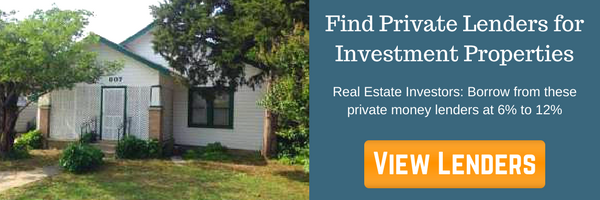
How to Avoid a Private Money Scam
For new real estate investors, it can be very difficult to find funding using traditional methods. This is because the market is no longer the same as it was 10-15 years ago (which is probably a good thing!). In addition, bad credit is preventing new investors from doing their first deal. As a result, some new investors are more prone to be susceptible to a private money scam.
As a result, private lenders are taking the place of traditional lenders to fund real estate deals, often with less restrictions. However, one of the flaws of private money is the amount of phony lenders out there. These scammers take advantage of uninformed investors, steal money, and negatively affect investors’ credit scores.
Private money lender scams are easy to avoid, and we’re going to show you exactly what to look for.
Let’s take a look at 3 major red flags of a private money scam and how you can avoid them.
Large non-refundable upfront fee

If a lender is asking you for an upfront fee as a “insurance loan” or “origination fee”, then you need to stop and ask yourself if this is a scam.
Some scammers will ask you to pay hundreds or thousands of dollars upfront and bail as soon as they have the money.
How to avoid:
- Do not give anybody money upfront, especially before the closing of a deal.
- Hire a lawyer to read the loan document. Lawyers can tell if a loan deal is legitimate and will make sure that there are no hidden clauses that can harm you later on.
Offer is too good to be true
Is the lender offering you 100% of the home’s value and a very low interest rate? If so, then it might be too good to be true and is likely a scam.
Private lenders won’t give you such discounts unless you already personally know them, because they are taking a big risk working with a new investor for the first time.
How to avoid:
- Have a realistic expectation of what lenders are willing to give you. Something between 50%-85% of a home value and a 7%-15% interest rate is reasonable.
- Ask yourself “Did the lender give me too much based on what I think is reasonable?” The risk of a deal should match the loan size and interest rate.
Unknown identity

If you’re having difficulty researching a lender, it might be a sign that the lender is not trustworthy.
Scammers will likely change their name frequently to avoid being caught.
How to avoid:
- Always do your research before making any decisions.
- If a lender has a company, make sure that it has a legitimate physical address and a phone number. Also look for any civil cases filed against the lender.
Avoid a private money scam
In essence, private money is still an effective way to raise capital with ease. And by knowing how to screen out potential scammers, you can avoid losing your time and hard-earned cash.
The bottom line is that private lending and borrowing from private lenders involves building a relationship—you both need to establish trust.
To recap:
- Never give money upfront.
- If a deal is too good to be true, it’s too good to be true.
- Research, research, research.
Bonus: Be very careful if you feels like the lender is coming off as pushy; either to have you paying them upfront money, or to sign a document you haven’t read.
And lastly, most private lenders won’t initiate contact with you—you’ll be the one to initiate. If a lender you’ve never met before is reaching out to you, be very wary.




